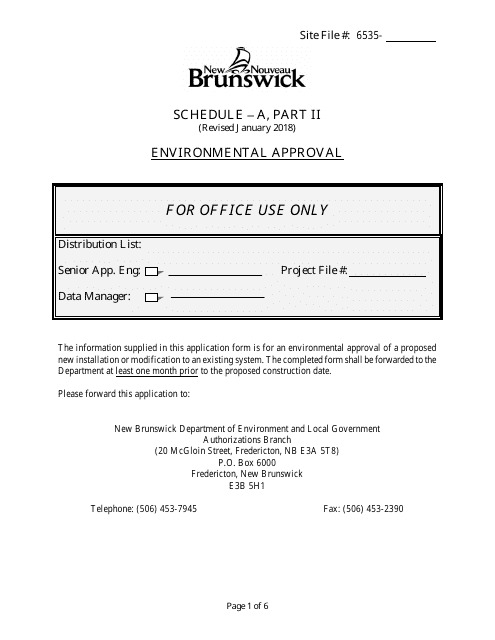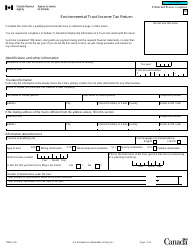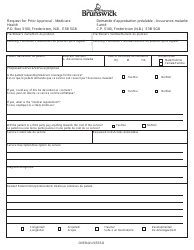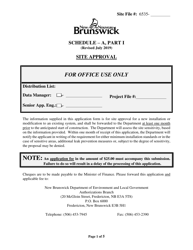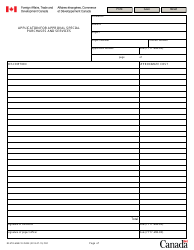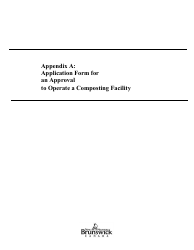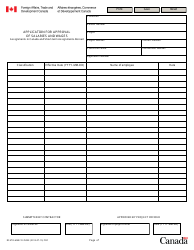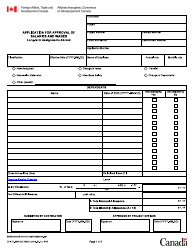Schedule A Part II - Environmental Approval - New Brunswick, Canada
Schedule A Part II - Environmental Approval in New Brunswick, Canada is a document that is required for certain projects that may have an impact on the environment. It outlines the environmental regulations and requirements that must be met for the project to be approved. This document helps ensure that the project is conducted in a manner that minimizes any negative environmental impacts.
The person or organization requesting the environmental approval in New Brunswick, Canada is responsible for filing Schedule A Part II.
FAQ
Q: What is Schedule A Part II?
A: Schedule A Part II refers to a list of activities that require environmental approval in New Brunswick, Canada.
Q: What is an environmental approval?
A: An environmental approval is a permit or authorization granted by the government to conduct certain activities that may have an impact on the environment.
Q: Why is an environmental approval necessary?
A: An environmental approval is necessary to ensure that activities are conducted in a way that minimizes harm to the environment and complies with relevant laws and regulations.
Q: What types of activities are listed on Schedule A Part II?
A: Schedule A Part II includes a variety of activities such as industrial processes, waste management, construction, and land development.
Q: Who is responsible for administering environmental approvals in New Brunswick?
A: In New Brunswick, the Department of Environment and Local Government is responsible for administering environmental approvals.
Q: How can I apply for an environmental approval?
A: To apply for an environmental approval, you should contact the Department of Environment and Local Government and follow their application process.
Q: What are the potential consequences of conducting activities without an environmental approval?
A: Conducting activities without an environmental approval can result in fines, legal action, and harm to the environment.
Q: Are there any exemptions or special considerations for certain activities?
A: Yes, there may be exemptions or special considerations for certain activities. It is important to consult the Department of Environment and Local Government for specific information.
